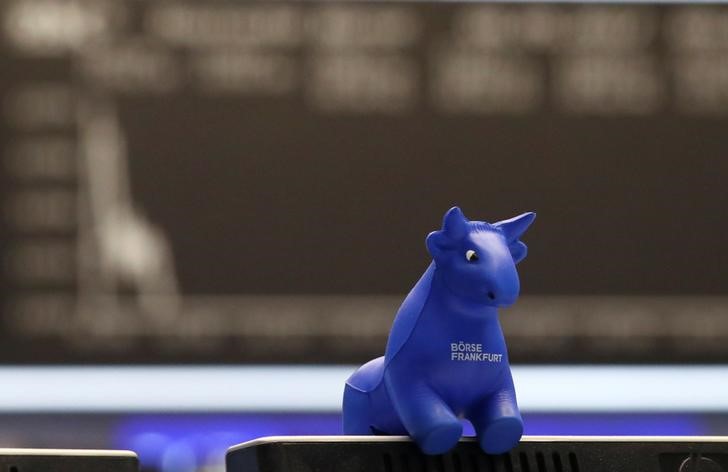By Peter Nurse
Investing.com - European stock markets are expected to open lower Wednesday, continuing the global selloff after the hotter-than-expected U.S. inflation data fueled speculation that the Federal Reserve will continue its aggressive monetary tightening.
At 02:05 ET (06:05 GMT), the DAX futures contract in Germany traded 0.3% lower, CAC 40 futures in France dropped 0.2% and the FTSE 100 futures contract in the U.K. fell 0.2%.
European stocks have received a negative handover from Wall Street, and Asia, after the U.S. consumer price index came in Tuesday more than expected for August.
This raised the likelihood that the Federal Reserve will keep raising interest rates at a sharp pace this year to combat inflation, even at the risk of the largest economy in the world falling into recession.
Markets are now pricing in a high possibility that the Fed will raise rates by 75 basis points next week, but the chance of a full 1% rate increase is now also being considered.
Back in Europe, the inflation situation is even more acute, with U.K. consumer prices rising 0.5% in August, a 9.9% rise on an annual basis.
Although this represents a slight dip from July, it still makes it likely the Bank of England will continue its tightening path despite its forecast that the country will enter a lengthy recession in the fourth quarter.
Bank of America expects the BoE to raise interest rates by half a percentage point next week and at its following two meetings, and then to make further quarter-point rate rises in 2023, taking rates to 4% by August next year.
In corporate news, Inditex (BME:ITX) will be in the spotlight Wednesday after the fashion giant, and owner of the Zara brand, reported a 24.5% jump in six-month sales and a higher profit than a year ago, closing July on a strong footing just before fashion demand started weakening last month due to rampant inflation.
Oil prices fell Wednesday in the wake of the strong U.S. inflation data, which raised the prospect of another hefty interest rate hike, lifting the dollar and likely weighing on further economic growth.
Helping limit the losses was the release of the monthly report from the Organization of Petroleum Exporting Countries, which reiterated forecasts for growth in global oil demand in 2022 and 2023, despite headwinds such as surging inflation.
U.S. crude stocks rose by just over 6 million barrels last week, according to data released Tuesday from the American Petroleum Institute, and official data from the Energy Information Administration is due later in the session.
By 02:05 ET (06:05 GMT), U.S. crude futures traded 0.4% lower at $86.95 a barrel, while the Brent contract fell 0.5% to $92.75.
Additionally, gold futures fell 0.3% to $1,712.85/oz, while EUR/USD traded 0.2% higher at 0.9985.
